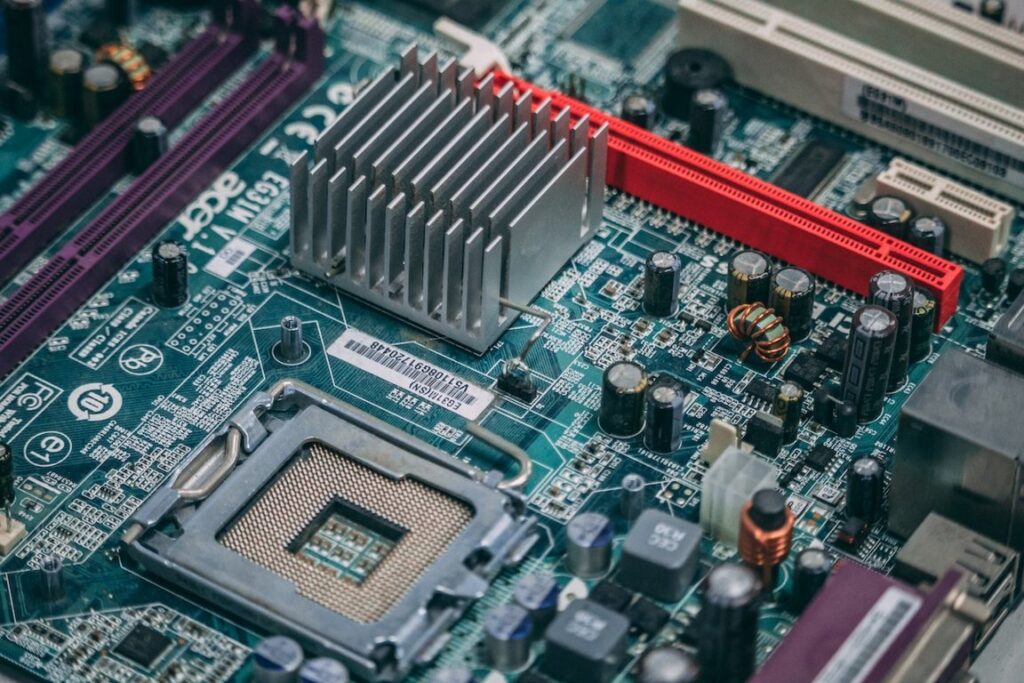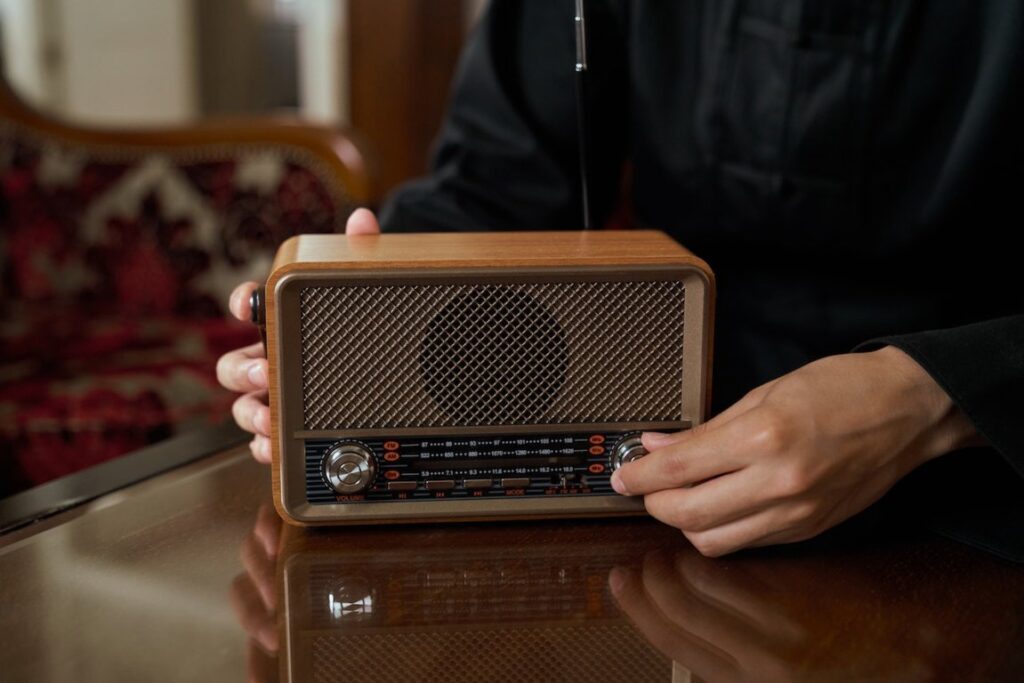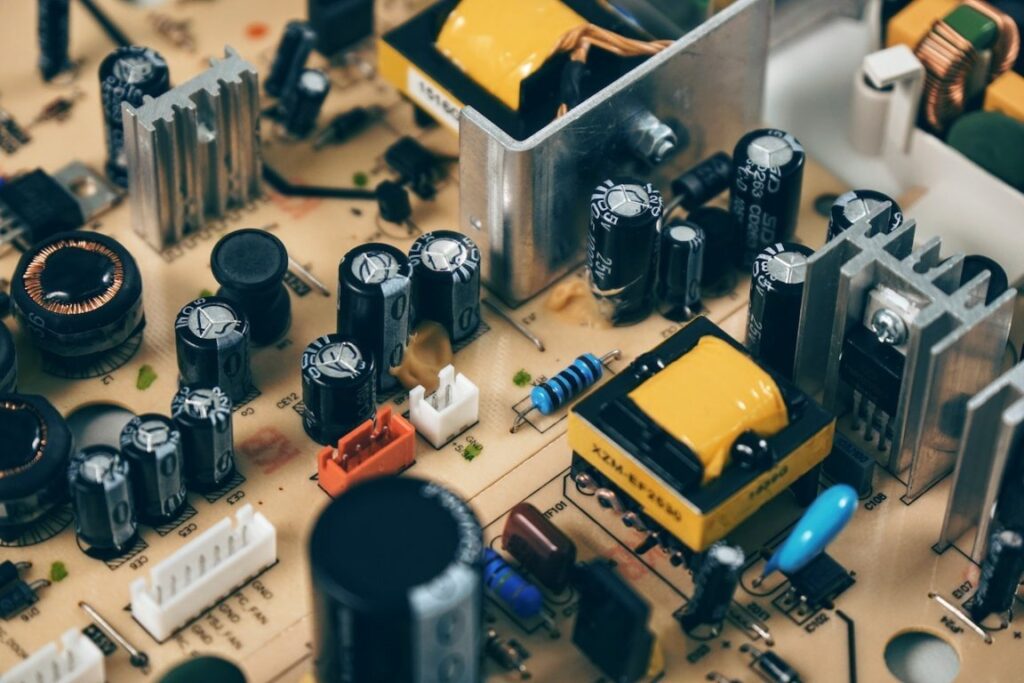The use of transistors in computers as a microchip has been at the heart of modern computers for decades. The transistor is a small electronic device that can be used to control the flow of electricity through a circuit. It is a semiconductor device that operates as an electronic switch, typically using the principles of quantum mechanics to control the flow of electricity. It is composed of a thin layer of semiconductor material, such as silicon, germanium, or gallium arsenide, sandwiched between two electrodes. Transistors have three main parts. Base, Collector, and Emitter.
The base terminal controls the flow of current between the other two terminals. The collector collects the current coming from the base and the emitter emits the current from the collector. Transistors are manufactured in a variety of different shapes and sizes, from small enough to fit on a fingernail to large enough to cover an entire wall.
Transistors in computers
Computers are a part of almost everyone’s daily lives. They are in our phones, our cars, and even our refrigerators. But most people don’t know what makes a computer work. The basic component in a computer is the transistor. Transistors are tiny switches that turn on and off to create the 1s and 0s that make up digital information. Without transistors, there would be no computers, no phones, and no internet. Transistors are so important that they are one of the three defining inventions of the electronic age, along with the radio and the television.
INFORMATION TECHNOLOGY AS A CAREER
In the early days of computing, transistors were used as the basic building blocks of electronic circuits. Today, transistors are still an essential component in computing, playing a role in everything from microprocessors to smartphones. They are the basic component in all computers and are used to switch on and off the flow of electricity, allowing computer processors to carry out their instructions.
Development of Transistors in computers
In 1947, John Bardeen, Walter Brattain, and William Shockley of Bell Laboratories invented the transistor. They were working on a project to improve the telephone at Bell Laboratories. The transistor was originally used as a switch in telephones. In 1953, the first computer with transistors was created. The transistor allowed computers to get smaller and faster. In 1958, Jack Kilby of Texas Instruments created the integrated circuit, which combines transistors and other components onto a single chip. This allowed for even smaller and faster computers. Today, most computers contain billions of transistors.

Types of transistors
Transistors are one of the most important components in electronic devices and circuits. There are many different types of transistors, each with its own set of unique characteristics. In this article, we will discuss the different types of transistors and their applications. Transistors come in two types: bipolar junction transistors (BJTs) and metal oxide semiconductor field-effect transistors (MOSFETs). BJTs are used in power amplifiers, switches, and oscillators. MOSFETs are used in digital circuits, including microprocessors.
Applications of Transistors in computers
Transistors are one of the most important inventions in history. There are many different applications for transistors in computers from tiny microchips to massive power amplifiers. Some common applications of transistors include:
> Computers – Transistors in computers act as microprocessor chips that power our computers.
> Cell Phones – Transistors are used in the logic circuits and memory chips in cell phones.
> Automobiles – Transistors are used in engine control systems, anti-lock braking systems, and other car electronics.
> Audio Equipment – Transistors are used in amplifiers, tuners, and other audio equipment.
> Medical Devices – Transistors are used in implantable medical devices such as pacemakers and defibrillators.
Applications of Transistors in daily life
The transistor is an essential device in modern life. It has found its way into everything from computers to cellphones, and its impact on society and the economy is undeniable. Here are just a few examples of how transistors are used every day:
5 INSTRUCTIONAL TECHNOLOGY EXAMPLES YOU’LL LOVE
> In radios and televisions, transistors are used to control the flow of electricity so images can be displayed on screens.
> Transistors help control the movement of motors in devices like cars, trucks, and machines.
> Transistors play an important role in digital communication by allowing signals to be transmitted electronically over long distances. –

Advantages of transistors
Transistors in computers are the key to modern electronics. They allow for smaller and more powerful devices and have drastically changed the way we interact with technology. They are also incredibly energy efficient, making them a major player in renewable energy.
> There are many advantages to transistors over other electronic devices.
> They are small, lightweight, and have low power consumption.
> They can be used in a variety of devices, from computers to portable electronics.
> They have a long life expectancy and are resistant to corrosion.
> Transistors also have a high switching speed, which makes them ideal for use in digital circuits.
> Additionally, transistors are relatively inexpensive to manufacture, making them an economical choice for many applications
Disadvantages of transistors
As technology rapidly progresses, more and more demands are being placed on transistors. With smaller and smaller sizes, higher frequencies, and greater power densities, the limitations of transistors in computers are becoming increasingly apparent. Some of these limitations include limited heat dissipation, electron confinement issues, mobility issues in high-performance transistors, and limited control over carrier injection.
> They can be slow because of the number of gates they require.
> They can also leak current, which wastes power and creates heat.
> Transistors can be unreliable if not properly manufactured or if they experience sudden changes in voltage or current.
> They can overheat if they are used for too long or at too high a power level. This can cause the processor to fail or shut down. transistors are sensitive to voltage changes and can be damaged if there is a power surge.
> In addition to these limitations, there are concerns about the security of transistor-based devices.
Conclusion
Transistors in computers are an essential part of modern technology. They have changed the way we live and work and will continue to do so in the future. They are reliable, efficient, and affordable, making them an important part of our world. As transistors continue to advance, they are becoming smaller and more efficient. This has led to the conclusion that transistors may one day be able to replace entire computer systems. Already, transistors can be found in most smartphones and other small electronics. As technology continues to develop, transistor-based computers will likely become the norm.
In conclusion, transistors have revolutionized how electronic devices are designed and manufactured. They have allowed for smaller, more efficient, and powerful electronics that can be placed in a wider range of products.

